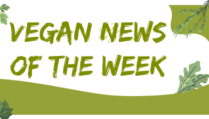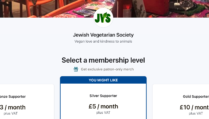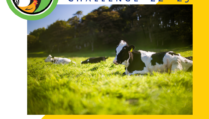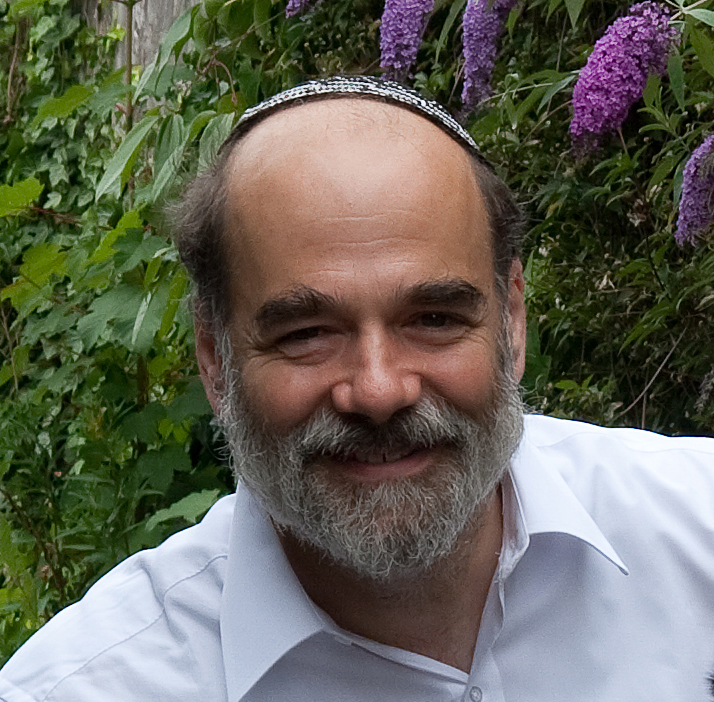 Rabbi Jonathan Wittenberg, JVS Patron, Senior Rabbi of Masorti Judaism UK and Rabbi of the New North London Synagogue writes about Torah portion Acharei Mot – Kedoshim.
Rabbi Jonathan Wittenberg, JVS Patron, Senior Rabbi of Masorti Judaism UK and Rabbi of the New North London Synagogue writes about Torah portion Acharei Mot – Kedoshim.
Rabbi Louis Jacobs once related how a congregant invited him to join a shooting party. Declining with characteristic humour, he explained to the gentleman that if the latter had felt confident he possessed sufficient skill to sever the windpipe and arteries of the poor bird with a single arrow in such a way that the animal felt no pain, he might have been able to accept. The issue of hunting is raised in our Sidrah: ‘Whoever among the Children of Israel or the strangers who live among them hunts a wild animal or bird which may be eaten, shall pour out its blood and cover it with dust. For the life of all flesh, its blood is one with its life.’ [Vayikra 17:13-14]
We thus learn that it is forbidden to eat blood, the key factor, together with the prohibition against causing suffering to animals, behind the laws of shechitah. The Talmud (Shabbat 22a) also derives a basic principle of respect: it’s not permitted to kick dirt carelessly over an animal’s blood with one’s foot. Just as the slaughterer uses his hands to wield the knife which kills an animal, so must he use his hands to bury the blood which was once the source of its life. The Torah refers to a pre-rabbinic situation, but may a Jew go hunting today at all? This very question was put to Rabbi Ezekiel Landau of Prague (1713-1793) by a man who had recently inherited a large estate including ‘forests full of wild animals’. Was he permitted to hunt them, or was this forbidden to a Jew on account of tsar ba’alei chayim, causing suffering to animals, and bal tashchit, needless waste?
The Noda Biyehudah, as Rabbi Landau was known, acknowledges that if a hunted animal is killed instantaneously no suffering is necessarily involved, and that if its hides are put to use there may be no waste. He also grants that if
people are starving they may have no choice but to hunt. Also, if a threatening animal strays into human habitation we may be justified in killing it, or even obliged to do so, to protect our own lives. But these are all exceptional situations, none of which constitutes an argument for permitting hunting in general. Further, there is a real concern for human safety. The Torah enjoins us to avoid endangering our own lives, which we are apt to do should we pursue animals to their lair and enter the territory of dangerous wild beasts. But the Noda Biyehudah’s key argument transcends such fine legal reasoning: hunting is cruel, and is simply not the Jewish way.
Up until now we have spoken from the vantage point of the letter of the law. However, in truth, I am amazed at the matter itself. We only find the title “hunter” with regard to Nimrod (Bereshit 10:9) and Esau (Bereshit 25:27). But this is not the way of Abraham, Isaac, and Jacob … And how can an Israelite actively kill an animal motivated by no need other than enjoying spending his time involved in hunting?
He notes that while it is the custom to recite the shehecheyanu blessing when putting on new clothes, this is not done if they are made of leather because an animal has had to die to provide it and ‘G-d’s mercies are upon all G-d’s works’. How then, he asks, can it be allowed to kill animals for no reason? Hunting is forbidden.
Soon after studying this responsum I was walking with my family in the New Forest when a fox ran past. A minute later the leading rider of the hunt cantered up and, slowing his horse, asked me if I had spotted the prey. ‘No,’ I said, ‘I haven’t seen any foxes around here.’ My son Mossy, who was just five, asked me with a puzzled look: ‘Why are you lying to that man?’ Surely pikuach nefesh, the saving of life, for which the breaking of all the commandments except idolatry, murder and sexual immorality is justified, should, if it can be extended to foxes, warrant a mere white lie. On a serious note, I find it hard to believe that any of us would even contemplate going hunting. But maybe we are guilty of doing so indirectly. We make constant incursions into the domain of wild animals, not just pursuing them to their lairs but destroying them entirely. We deprive them of their food. By marketing and purchasing products which entail their pain, we often transgress against the injunction of preventing animal suffering.
We avoid seeing with our own eyes the cruelties which our way of life often involves. We are collectively responsible for these wrongs against God’s world of nature, and must strive to change our ways.
















